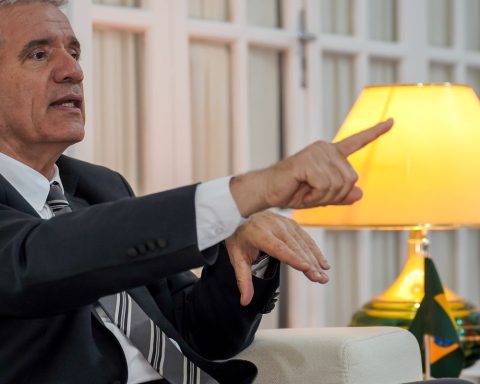AND
n the last years, the price of electricity has increased astronomically in Europe: it multiplied by four in relation to last year and by ten in relation to the last two years. The European Union (EU) has argued that this price increase is due to the increase in the value of gas on the international market and that Russia is not supplying enough gas. This raises a critical question: Why, for example, has the price of electricity in Germany increased fourfold when natural gas contributes about a seventh of its electricity production? Why is the UK, which generates 40 per cent of its electricity from renewables and nuclear power plants, and produces half of the natural gas it consumes, also experiencing a sharp rise in electricity prices? All this blaming Russia for the recent increase in gas prices covers up the fact that electricity generators are actually making astronomical profits. The poorest consumers, who have already been pushed against the wall by the pandemic, face a cruel dilemma: with electricity bills – which are likely to represent 20 to 30 percent of their family budget during the winter – should they buy food or keep their houses warm?
This sharp rise in electricity prices is the other side of the coin of the so-called electricity sector market reforms
that have taken place in the last 30 years. The cost of electricity is linked to the most expensive supply from the grid in daily and hourly auctions. Today, the most expensive supply is natural gas, and this is why electricity prices increase a lot even though gas is not the main source of electricity supply to the grid. This is market fundamentalism, or what neoclassical economists call marginal utility theory
and it was part of the electricity sector reforms that Augusto Pinochet introduced in Chile during the military dictatorship (1973-90). The guru of these Pinochet reforms was Milton Friedman, who had the help of his chicago boys. The principle that the price of electricity should be based on its marginal price
it became part of the Pinochet constitution in Chile in 1980. The Chilean reforms led to the privatization of the country’s electricity sector, which was the main objective of these reforms.
It was the Chilean model that Margaret Thatcher copied in the United Kingdom, which was later copied by the EU. The United Kingdom dismantled its Central Electricity Generating Board (CEGB), which managed its entire electrical infrastructure: large-scale generation, transmission and distribution. This move also helped the UK abandon domestic coal for its power stations, breaking up the powerful coal miners’ union. They were also the reforms
of Enron’s market in California, leading to the collapse of its network in the summer of 2000-01.
The European Union has made a strong commitment to natural gas as the preferred fuel to reduce its greenhouse gas emissions; it also increased renewable energies –solar and wind– and eliminated lignite and coal. The EU has imposed a series of sanctions on Russia, has made public its plans to impose further sanctions on the country, and some €300 billion of Russian reserves held in EU banks have been seized. The EU has also said it will reduce oil and gas supplies from Russia. Not surprisingly, Russia has drastically reduced its gas supplies to the EU. If the West thought it could arm its financial might, why did it think Russia would not retaliate by doing the same with its gas supplies to the EU?
Due to the drop in Russian natural gas supplies to Western Europe, the price of LNG has risen sharply on the international market. And what is worse, there is simply not enough LNG available on the market to replace the gas that Russia supplied to the EU through its pipelines.
As the price of gas has multiplied by four or six in recent months, the price of electricity has also gone up a lot. But since only part of the electricity comes from gas, all other energy sources – wind, solar, nuclear, hydro, and even dirty coal-fired power plants – are doing a brisk business. It is now that the EU and UK are discussing how to deal with the burden of high electricity prices on consumers and the windfall profits made by electricity generators during this period.
EU and UK consumers are not the only ones affected. Also European and British industries. The stainless steel, fertilizer, glass manufacturing, aluminum, cement, and engineering industries are sensitive to input costs. Therefore, all these industries are at risk of closing in the EU and the UK.
Former Greek Finance Minister Yanis Varoufakis, in his article It’s time to bust the electricity markets
write: The electricity sector of the European Union is a good example of what market fundamentalism has done to electricity networks around the world… It is time to liquidate the simulated electricity markets
. The rest of the world would do well not to follow the example of the EU.
Why then is the central government of India, under the leadership of Narendra Modi, rushing into this abyss? Didn’t you learn from the experience of last year, when, following a coal shortage, spot market prices for electricity rose to 20 rupees ($0.25) per unit before public outcry capped them at 12 rupees ( $0.15)? So why push these bankrupt market fundamentalist policies again under the guise of electricity reforms? Who will benefit from these market reforms? Certainly neither the consumers nor the Indian state governments, which bear most of the burden of subsidizing electricity prices for their consumers.
* Activist of science and the free software movement. / Original Source: Globetrotter

















